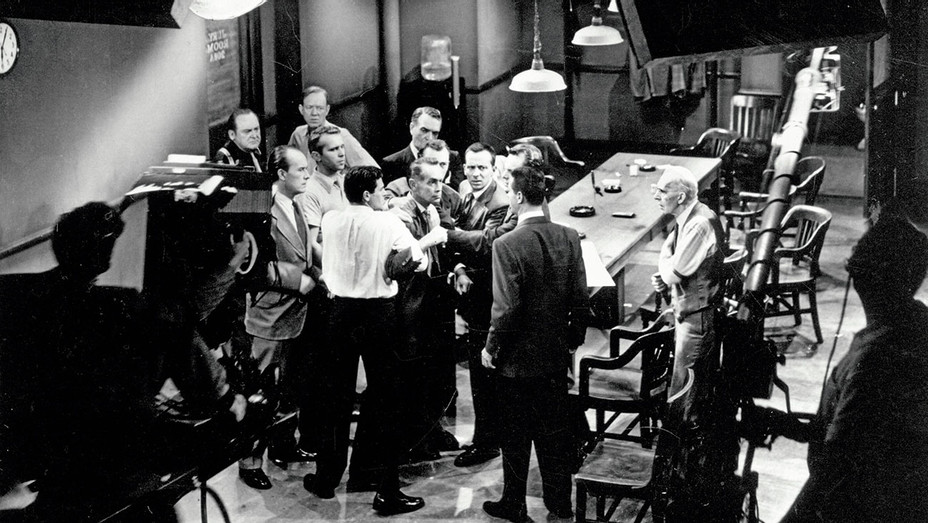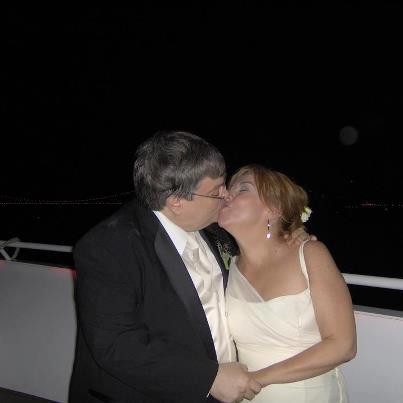“It is said that the children of the very poor are not brought up, but dragged up.”
Charles Dickens, Bleak House
Terry Teachout on the arts in New York City
“It is said that the children of the very poor are not brought up, but dragged up.”
Charles Dickens, Bleak House
In today’s Wall Street Journal drama column, I write about the original 1954 live-TV version of Reginald Rose’s Twelve Angry Men. Here’s an excerpt.
* * *
Most people know “Twelve Angry Men,” in which Reginald Rose dramatized the contentious deliberations of a New York jury, from Sidney Lumet’s 1957 film version, whose screenplay was written by Rose and which featured a top-flight ensemble cast led by Henry Fonda, Martin Balsam, Lee J. Cobb, E.G. Marshall and Jack Klugman. More recently, the Roundabout Theatre Company brought Rose’s stage adaptation of “Twelve Angry Men” to Broadway in 2004 for a successful run. To this day it is a regional-theater staple, as well as the sixth most frequently staged full-length play in American high schools (where it is performed with women in the cast and is known as “Twelve Angry Jurors”).

But many fans of the film are unaware that “Twelve Angry Men” began life as a live-TV drama directed by Franklin J. Schaffner that aired on CBS’ “Studio One” in 1954. It ranks alongside Paddy Chayefsky’s “Marty,” Horton Foote’s “The Trip to Bountiful,” Abby Mann’s “Judgment at Nuremberg,” JP Miller’s “Days of Wine and Roses,” and Rod Serling’s “Requiem for a Heavyweight” as one of a small number of live-TV dramas from the 50’s that were subsequently turned into artistically and commercially successful movies.
I mention all this because it is now possible to watch the live-TV version of “Twelve Angry Men” on YouTube, meticulously restored from a surviving kinescope film of the original 1954 telecast—and you know what? It’s better than the movie. A lot better….
* * *
Read the whole thing here.The original Studio One telecast of Twelve Angry Men:

Jack Teagarden sings and plays “Basin Street Blues” in a 1958 TV clip. He is introduced by John Cameron Swayze. The band includes Tony Parenti on clarinet, Ruby Braff on trumpet, Marty Napoleon on piano, Chubby Jackson on bass, and Cozy Cole on drums:
(This is the latest in a series of arts- and history-related videos that appear in this space each Monday, Wednesday, and Friday)
“Justice is a machine that, when someone has once given it the starting push, rolls on of itself.”
John Galsworthy, Justice
In today’s Wall Street Journal“Sightings” column, I write about the effect of the building of Lincoln Center on the Metropolitan Opera and the arts throughout America—and how its influence has left performing-arts groups in other cities less well-equipped to battle COVID. Here’s an excerpt.
* * *
The Met’s underlying problem is the 3,800-seat Metropolitan Opera House, which is too big for any good purpose, artistic or otherwise, and whose size will make it impossible for the company to scale down its future operations to allow for the shrinking of its aging, COVID-averse audience. But, then, all of Lincoln Center’s auditoriums (save for Lincoln Center Theater’s Vivian Beaumont and Mitzi E. Newhouse Theaters) are too big to be used with any kind of artistic flexibility and have long posed similar problems to the organizations that perform in them—problems that COVID has intensified.
How did this happen? Blame Robert Moses.

Fifty-four years after the Met tore down its midtown home and moved to Lincoln Center, it is easy to forget that America’s first and biggest multi-purpose performing arts center was built by Moses not merely to prove to the world that New York was a major player on the international arts scene, but also to employ the fine arts as an engine of urban renewal of the Upper West Side. It succeeded on both counts. Lincoln Center was in those far-off days the “home” of George Balanchine, Leonard Bernstein, Leontyne Price and Beverly Sills, an irresistible draw for arts lovers of all kinds. To put these giants on the same campus was bound to make Lincoln Center a magnet for audiences.
The success of Lincoln Center would inspire the building of similar urban performing-arts centers all over America, among them (to cite only a few examples) Atlanta’s Cobb Energy Performing Arts Centre, Miami’s Adrienne Arsht Center, Dallas’ AT&T Performing Arts Center and Washington’s Kennedy Center. Alas, the powers-that-be responsible for their creation could not have foreseen the myriad socio-economic changes that would cause their audiences to move to the suburbs—much less changing demographics and the explosive emergence of convenient Web-based home-entertainment options that have undercut all performing-arts groups. Moreover, many of them do not house fully professional performing-arts ensembles of any kind, much less top-tier groups….
* * *
Read the whole thing here.“It requires courage not to surrender oneself to the ingenious or compassionate counsels of despair that would induce a man to eliminate himself from the ranks of the living; but it does not follow from this that every huckster who is fattened and nourished in self-confidence has more courage than the man who yielded to despair.”
Søren Kierkegaard, The Concept of Irony

Hilary and I were married thirteen years ago today. Back then I took it for granted that I would outlive her—she still had a life expectancy of two years—but it soon became clear, to my boundless delight, that she wasn’t going anywhere, and we spent a decade full of adventure and joy. At that point, alas, her condition started to worsen, and our last two years together deteriorated into a series of increasingly dire crises. I took care of her as best I could and we continued to take pleasure in one another’s company, but it was clear that the odds against her were growing longer and longer.
Now she is gone, and this is the first time that I have marked our anniversary without having her alongside me to share memories of our wonderful wedding (we were married on a yacht called—no kidding—the Romantica) and honeymoon (among other things, we paid a visit to Fallingwater). From here on, I shall have to remember them by myself. Somehow I never really believed that such a state of affairs would come to pass: the human capacity for self-deception is infinite. Fortunately, I have dozens of pictures of the wedding to remind me of what it was like, and a lifetime’s worth of memories to hold in my heart.
I keep reminding myself that I was lucky to have thirteen years of a profoundly happy marriage, but—of course—one can never have enough of so miraculous a thing. Perhaps it will be easier a year from now to be properly grateful for my good fortune. I hope so.

Jim Ferguson sings “In the Wee Small Hours of the Morning,” accompanying himself on bass:
(This is the latest in a series of arts- and history-related videos that appear in this space each Monday, Wednesday, and Friday)
An ArtsJournal Blog